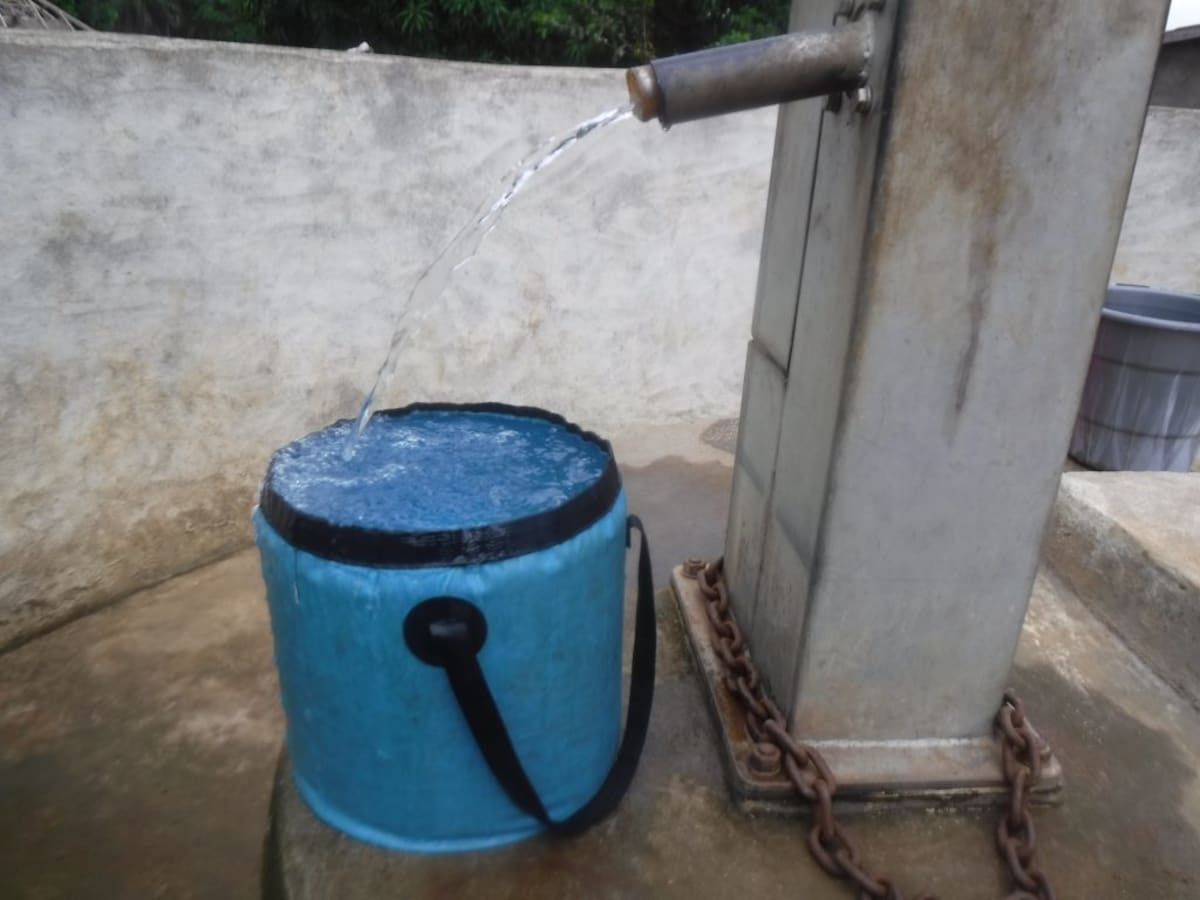The main problem in Mapeh is that the number of people continues to grow as the water supply dwindles.
At one end of the mile-long village is a functioning, protected borehole well rehabilitated in 2017. But at the other end is an aging hand-dug well constructed more than 30 years ago. The older well yields less and less water with each dry season. This sends everyone to the borehole, which translates to long queues of people waiting for water at all hours.
 The ones affected the most are schoolgoing children, who are often late to class because they cannot fetch water for their families on time, and women food vendors, who cannot prepare wares to sell early enough to meet the demand. Everyone gets up as early as they can, and still, they find a crowd waiting for them at the village's only working well.
The ones affected the most are schoolgoing children, who are often late to class because they cannot fetch water for their families on time, and women food vendors, who cannot prepare wares to sell early enough to meet the demand. Everyone gets up as early as they can, and still, they find a crowd waiting for them at the village's only working well.
"If there was sufficient water in my village, I would not struggle as much as I do now," said 13-year-old student, Neneh K (in the righthand photo). "We stand in line with all the arguments and since we live at the end of the village that has the hand pump that dries, we are told to use our pump, which is not fair since we all live in the same village."
 For now, the borehole well that the community relies on shows no sign of seasonal drying. However, the constant use puts a great deal of strain on the well's hardware, which will continue to break and cost the community money unless an alternative source of water is provided.
For now, the borehole well that the community relies on shows no sign of seasonal drying. However, the constant use puts a great deal of strain on the well's hardware, which will continue to break and cost the community money unless an alternative source of water is provided.
Because well water is such a precious commodity, people still need to make their way to the swamp to fetch water for bathing and laundering clothes, which exposes water fetchers (usually women and children) to jungle predators like snakes.
Emma Dumbuya, 50 (in the left photo), won't risk sending her children to fetch water for her for this reason. "I have children big enough to fetch water for me from the swamp, but the near-miss incident I had with snakes totally discourages me from sending any of them. I prefer making the trip myself and not risking the lives of any of my children."
Here’s what we’re going to do about it:
Well Rehabilitation
The well marked for this overhaul is dry for a few months every year and needs major work to supply adequate, clean water to the community year round. The pump will be removed, and a hand auger will be lowered inside and powered by a drill team. This hand auger will allow the team to drill several meters deeper to hit a sufficient water column that will ensure the well supplies water throughout all seasons.
As the team drills, casing will be installed, transforming the bottom of this hand-dug well into a borehole. PVC piping will connect this lower system directly to the pump, a construction that we know will also improve the quality of water.
Once this plan is implemented, everyone within the community will have access to safe drinking water in both quality and quantity, even through the dry months.
Hygiene and Sanitation Training
There will be hygiene and sanitation training sessions offered for three days in a row.
After our visit, the hygiene and sanitation trainer decided it would be best to teach community members how to build a tippy tap (a hand-washing station built with a jerrycan, string, and sticks). They will use these tippy taps for handwashing demonstrations, and will also teach about other tools like dish racks and the importance of properly penning in animals.
These trainings will also strengthen the water user committee that manages and maintains this well. They enforce proper behavior and report to us whenever they need our help solving a serious problem, like a pump breakdown.

 Borehole Well and Hand Pump
Borehole Well and Hand Pump






























